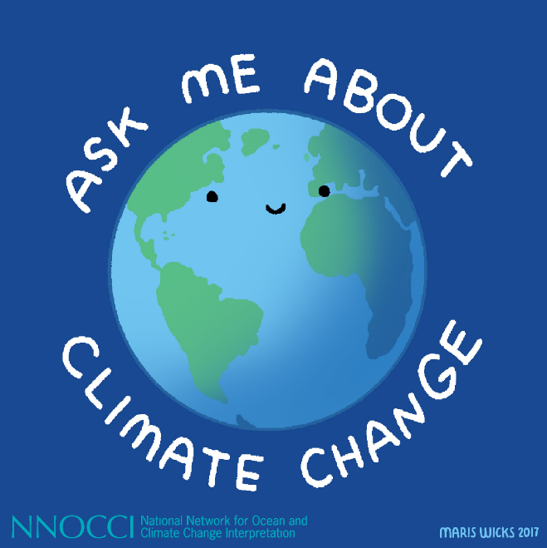It is possible to facilitate informative and empowering conversations about climate change. In this two-day course, participants will learn about strategic framing – a research based approach to communication that engages audiences in thinking productively about how they can participate in creating or supporting solutions to climate change.
This training, from the National Network for Ocean and Climate Change Interpretation (NNOCCI), introduces the elements of strategic framing, such as tone, values, explanatory metaphors, and solutions; provides an opportunity to practice applying what participants learned; and increases participants’’ confidence in their ability to overcome barriers to interpreting climate change issues.
Informal science education institutions (ISEIs), including aquariums, zoos and state parks facilitate tens of millions of conversations with the public annually. Each conversation offers a chance to make a lasting impact on the participants’ understanding of scientific issues and also on perceptions of their own capacity to make a difference in the world.
The National Network for Ocean and Climate Change Interpretation (NNOCCI) started with a commitment to using evidence-based communications developed through social science research. Since 2010, NNOCCI worked with social scientists and ocean and climate scientists to train ISEI educators and others. This training focuses on learning empirically tested techniques such as appealing to common, deeply held values that unite Americans, explaining the mechanisms driving climate change with tested metaphors, and orienting discussion toward examples of people already fostering positive change.

To understand how people think about climate change.
To introduce you to why we need to tell a different story about climate change and give you tools to start telling that story.
To practice using communication tools that lead to productive communication about climate change.
At the end of the day participants will understand:
At the end of the day participants will feel:
The course is designed for those that may find themselves interacting with members of the public on climate change issues, this includes but is not limited to both informal and formal educators, communications specialists, planners, municipal staff, floodplain managers, hazard mitigation planners, sustainability managers, community groups, members of civic organizations and non-profits, and coastal resource managers.
Related Topics: climate change, coastal, communication, education, ocean and coasts, training